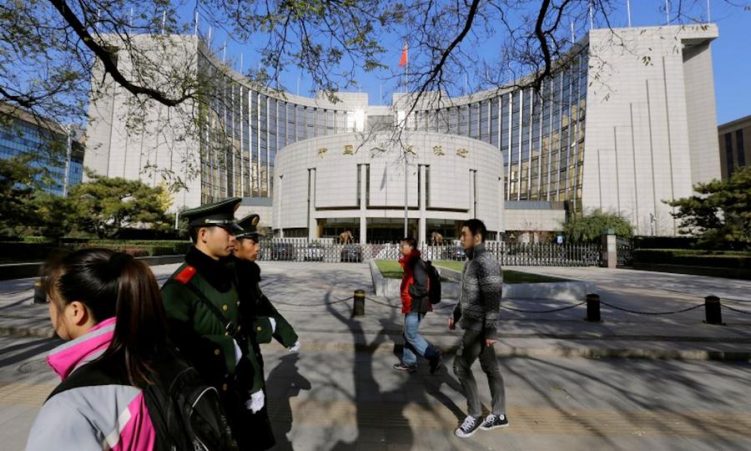The People’s Bank of China will cut the reserve requirement ratio for all banks by 50 bps from July 15; Chinese banks extended more than 2 trillion yuan in new loans in June, which was more than expected but smaller firms are seen to be needing help
(AF) China’s central bank said on Friday it will cut the amount of cash that banks must hold as reserves, releasing around 1 trillion yuan ($154.19 billion) in long-term liquidity to help underpin an economic recovery that is starting to lose momentum.
The People’s Bank of China (PBOC) said on its website it would cut the reserve requirement ratio (RRR) for all banks by 50 basis points (bps), effective on July 15.
Banks that are subject to an RRR of 5% will be exempt from the new cut.
The PBOC last cut the reserves ratio in April last year, when the Chinese economy had been hit hard by the coronavirus crisis.
In the year since the economy has staged a strong rebound, aided by resilient exports, which has allowed the PBOC to shift to a moderate tightening bias in recent months.
The country’s cabinet said on Wednesday that authorities will use timely cuts in RRR to help small firms cope with the negative impact from rising commodity prices, which came as a surprise to the market.
New bank loans up
Meanwhile, new bank loans rose more than expected in June from the previous month, while broad credit growth also picked up substantially.
Chinese banks extended 2.12 trillion yuan ($327 billion) in new yuan loans in June, up from 1.5 trillion yuan the previous month, data from the People’s Bank of China showed on Friday.
Analysts polled by Reuters had predicted new yuan loans would rise to 1.8 trillion yuan in June.
The economy has largely rebounded to its pre-pandemic growth levels, however, smaller firms are bearing the brunt of the recent surge in raw material prices, as they struggle to pass on increased costs to consumers.
With reporting by Reuters.
This story was updated on July 9, 2021.
ALSO SEE:
China pivots towards consumption to promote its self-sufficiency
























